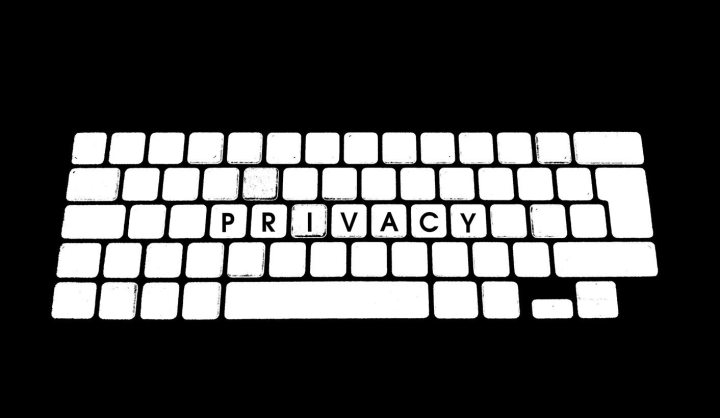South Africa
Trust and consequence: If you are a voter, they know where you live

As South Africans are getting ready to catch the municipal election bug with the first voter registration weekend from March 5, there is a potentially nasty surprise in store. For the first time the voters’ roll will publicly feature home addresses of voters – potentially opening the door to many a field day for marketing and data companies, spooks, police and others keen to get their hands on personal information. By MARIANNE MERTEN.
The Electoral Commission of South Africa (IEC) on Tuesday 16th confirmed voters’ residential addresses would be part of the voters’ roll. This follows the Constitutional Court case on the controversial and contested 2013 Tlokwe by-election, where the IEC says, it was found wanting on three points: being late in handing over the voters’ roll to candidates and political parties, that the voters’ roll did not include addresses and incorrect registering of voters in the by-election wards.
“I have no option not to comply with the Constitutional Court order,” said IEC deputy chief electoral officer Sy Mamabolo after a briefing to MPs on preparations for the 2016 municipal poll. However, he pointed out it was an offence to use voters’ roll details for any purpose rather than elections under the law. And the IEC would do everything possible so everyone is aware of this, including looking into having political parties and candidates sign a confidentiality agreement.
The voters’ roll, now with voters’ home addresses, not only goes to election candidates and their respective parties, but also is made available in public for inspection at municipal offices countrywide until the date of the election, according to the IEC website.
So what’s stopping any marketing company, spook, police official, or anyone else for that matter, to snap a photo with a smart phone or tablet? Nothing, really.
It has already happened that political parties have acquired personal details: using names and ID numbers in the voters’ roll is enough to acquire other data like phone numbers via those companies making a living from personal information. The DA, in particular, has been fingered in this respect: voters’ telephone numbers are crucial for its pre-poll canvassing and SMS alerts urging voters to go and make their cross.
Until now the election commission has maintained its own database with personal details, away from the public eye. To put it simply: the voting station’s zip-zip machines can read the little sticker in a voter’s ID book, or the barcode, and check the voter’s personal details to ensure the ballot is cast in the correct ward.
But an IEC insider said the police have also approached the election commission requesting personal information. To date the election body has dismissed such requests, saying the law enforcement agencies must come with a subpoena.
While it’s not difficult to get personal information, it still requires some work. There are companies who sell to marketing companies the details of consumers, who have forgotten to tick the box denying consent for this (that can happen even when just buying an appliance); hence those calls or SMSes touting funeral or insurance policies, better deals on cars and the like. Legally, telecommunications companies have to hand to security services with the required subpoena their clients’ personal details acquired through the Regulation of Interception of Communications and Provision of Communication-related Information Act (RICA), which makes compulsory the registration of cell phone numbers. Personal information can also be obtained through the deeds office, where every property owners is recorded, the companies’ database and now motor licence renewals are only possible with proof of address. However, access requires legal permission, and triggers a system of checks and balances.
Of course, your address will not feature on the voters’ roll if it goes something like the homestead to the left of the large tree after three koppies – a reality for millions of South Africans. But if your address conforms to the more traditional street addresses in urban areas, or possibly even the system of numbered shacks in many of the country’s informal settlements, it will be there in public for anyone to see.
Perhaps this is not such a train smash for President Jacob Zuma whose homestead in Nkandla, where he has previously cast his ballots, is well known. But there are consequences for ordinary South Africans of having their personal details publicly displayed on the voters’ roll.
The Protection of Personal Information Act passed in Parliament in 2013 has yet to be activated. According to insiders Ellipsis Regulatory Solutions, the legislation can only be expected to come into force in mid-2017 at the earliest; key structures, like the information regulator, are yet to be established. That legislation requires institutions to act responsibly when collecting, processing, storing and sharing personal information. Institutions must enforce control to access to such personal information, and ensure a system of tracking access, legitimate or unauthorised. The legislation also gives rights to individuals, including their consent to provide personal information for specific purposes and transparency how this information will be used.
So, for now, ordinary South Africans who want to exercise their right to vote, may just find themselves at the mercy of unscrupulous elements in both the private and public sector. Great encouragement to come out to vote, indeed. DM
Photo by g4ll4is via Flickr

















 Become an Insider
Become an Insider